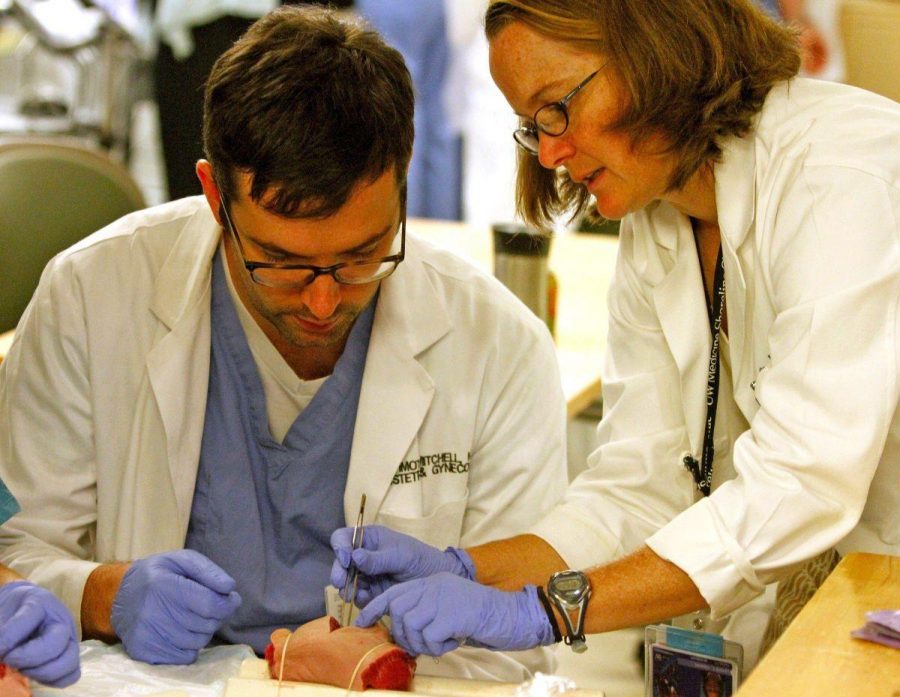Get ready pre-med students: MCAT changes to come by 2015
October 16, 2014
Students who plan to take the Medical College Admission Test, or the MCAT, in April 2015 or later should expect a treat: three more hours of testing and several new areas to study.
The new 2015 exam — which, according to the Association of American Medical Colleges will begin on April 17, 2015 — will be longer than the current exam. The current exam runs about three hours and 20 minutes with 144 questions, and the new exam will run six hours and 15 minutes with 230 questions.
The MCAT tests physical and biological sciences, verbal reasoning and cognitive skills. The new exam will include the current sections, along with new sections that test biochemistry, psychology, social science, behavioral science and critical analysis and reasoning skills.
According to the AAMC website, the old format will be available for the last time on Jan. 23, 2015. The reason for these changes is because of “the rapidly advancing and transforming health care system,” and to help medical schools find “well-rounded applicants from a variety of backgrounds,” the AAMC site said.
Bearing these changes in mind, Pitt professors are working to make sure students will be equipped for the new exam. Sam Donovan, a foundations of biology professor, said he has been tracking the changes to the MCAT and altering his lessons to fit them.
“I’ve been trying to teach foundations of biology two in a way that reflects the new emphasis on critical analysis and reasoning skills,” Donovan said.
Outside test-prep resources are also aware of the changes and are developing new methods of study to suit them.
Eric Chiu, an executive director of pre-medical programs at Kaplan Test Prep in New York City, said students may need to study in a different way to prepare for the MCAT. Kaplan, which provides MCAT practice tests, prep courses and other preparatory materials to students, has followed the development of the new exam closely, according to Chiu.
Pittsburgh students interested in MCAT prep could consult the local Kaplan Test Prep branch located on North Bellefield Avenue in Oakland. Students on the Kaplan website recommend others study two to three times per week and take a practice test once per week.
Chiu said Kaplan will prepare new courses and materials to fit in with the new exam criteria, such as new summer intensive courses, 11 full-length practice tests with the new format and specialized private tutoring sessions. Chiu also said the test will be scored differently.
The highest score students can receive on the current test is 45 points divided across three sections at 15 points each. The new test will include four sections, with a possible 132 points in each section, making the possible new total 528 points.
“The mean is expected to be 125 per section for a total mean score of 500,” Chiu said.”
The additions to the exam will affect pre-medical students in their junior year or younger who will take the exam in summer of 2015. Chiu encouraged prepared students to take the current MCAT, but many students will not have completed the courses required for the exam — including biological sciences, physics and both organic and inorganic chemistry — before the new one takes effect.
Kelli McClintock, a sophomore pre-med student, said she will not be prepared in time to take the exam before it changes.
“I would rather take the current exam because many people have already taken it and I can get advice about how to study for it and what it’s like, but I won’t be ready in time,” McClintock said. “It will be nerve-wracking to take an exam that no one else has taken before.”
Chiu said students shouldn’t worry too much, and that there will always be negative rumors surrounding a standardized testing change.
“While students should take whichever version of the MCAT for which they’ll be better prepared, there are a few compelling reasons for students to take the current test by January if they can,” Chiu said. “There is always a degree of uncertainty.”








